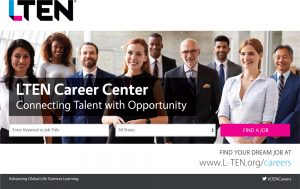5 Must-Haves for Successful Manager Development
Leadership/Management Development – By Gus Prestera, Ph.D.
How do you help managers stay focused after the initial excitement wears off?
In order to retain, grow and engage managers, today’s life sciences organizations know they must actively support career development. But how?
 Find Coachable Players. You get little traction from forcing development on managers who are not willing or able to change their ways in response to constructive feedback. Start by focusing on managers who have demonstrated a willingness to learn. They benefit most from your investment and they ultimately are the kind you want to retain.
Find Coachable Players. You get little traction from forcing development on managers who are not willing or able to change their ways in response to constructive feedback. Start by focusing on managers who have demonstrated a willingness to learn. They benefit most from your investment and they ultimately are the kind you want to retain.- Find Willing Coaches. People are often blind to their own strengths and weaknesses, to the various career paths available to them, and to what it takes to achieve their goals. You need coaches willing and able to help others navigate those blind spots.
- Unlock Aspirations and Pathways. Most employees have not given any serious thought to where they want to be professionally in 10 years, five years or perhaps even in two years. Having a coach pose questions around aspiration — what gets you excited to come to work, what brings you down, etc. — can help managers get in touch with deep-seeded aspirations. Coaches are also valuable in helping managers visualize who they could be and different ways to get there.
- Foster Self-Awareness. Managers who continually reflect on their actions, actively seek out feedback, and understand the impact their actions have on others rapidly grow as leaders. For most managers, though, self-awareness does not just fall from a tree. It is a skill that must be developed early, because the higher they rise, the more insulated managers become from candid feedback. A good coach fosters self-awareness and may use psychological instruments, 360-degree interviews/surveys, performance metrics and reflection techniques to create a breakthrough moment. Only in these moments of self-awareness will a manager accept responsibility and commit to meaningful change.
- Create Accountability. However good the development plan, nothing will be achieved unless the manager follows through on it. A good plan sets specific, time-bound targets for achieving development goals, leverages a mix of formal and informal learning resources, mentoring and experiential learning that challenge them to demonstrate mastery of new skills and behaviors. A manager who wants to improve their proposal presentation skills should eventually be presenting a proposal to a group of colleagues and getting feedback from them. That presentation becomes a development milestone, and the plan a means to reach it successfully.
 How do you help managers stay focused on their plan after the initial excitement wears off and other priorities crash the party? Managers can schedule regular check-ins with their managers. They can recruit an accountability partner, a colleague who checks in on their progress. They can work with a mentor. They can share their plan and progress updates with colleagues, friends, and family members. They can create reminders, such as putting a poster of the plan on the wall next to their PC, block out time on their calendars and set task reminders on their smartphones. They can pre-purchase registrations for events and courses to make it more difficult to back out at the last minute. They can connect with affinity groups for mutual support.
How do you help managers stay focused on their plan after the initial excitement wears off and other priorities crash the party? Managers can schedule regular check-ins with their managers. They can recruit an accountability partner, a colleague who checks in on their progress. They can work with a mentor. They can share their plan and progress updates with colleagues, friends, and family members. They can create reminders, such as putting a poster of the plan on the wall next to their PC, block out time on their calendars and set task reminders on their smartphones. They can pre-purchase registrations for events and courses to make it more difficult to back out at the last minute. They can connect with affinity groups for mutual support.
Only with accountability will there be any follow-through and professional growth.
Gus Prestera, Ph.D., leads the consultancy Prestera FX and is an organizational
effectiveness consultant, educator and coach. Email Gus at gus@presterafx.com.









